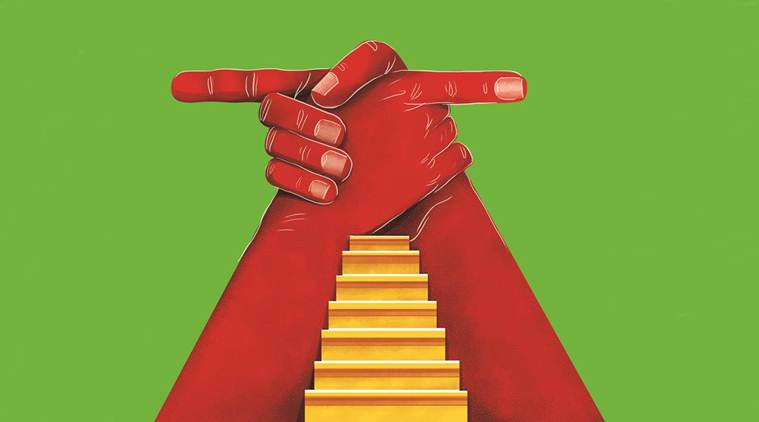Don’t fire from Supreme Court’s shoulder
Fighting social ills needs engagement with communities, throwing the Constitution at them won’t help.

Liberals who are sincere about religious reform should be wary of firing off the shoulders of the Supreme Court and the state.
I write this as a liberal who has made the pilgrimage to Sabarimala. I unequivocally support the right of all women devotees to worship at the shrine. As a confirmed brahmachari, Ayyappa is surely resolute enough to not be perturbed by female devotees in their menstruating years seeking his darshan without needing the protection of his more conservative followers, let alone the Sangh Parivar!
But India’s liberals are at risk of scoring a massive own goal on Sabarimala. By cheering on the Supreme Court and the Kerala government’s ramming through of changes that cut across deeply- held beliefs of Ayyappa devotees — rather than engaging with them, left-liberals are actually compromising the prospects for religious reform. They are risking the credibility of the courts and undermining our secular democracy.
Of all the targets of liberal ire, Sabarimala is amongst the least culpable. No Hindu shrine that I have been to is less “brahmanical” and more syncretic and inclusive (of course, other than for women aged between 10 and 50). People of all castes and creeds have been observing the 41-day vratam and making the jungle trek to the temple for centuries. The singer K J Yesudas, who is Christian, is a long-standing devotee, as are many Muslims and a visit to the Vavar mosque in Erumeli is an integral part of the pilgrimage. There is little visible money or political influence on display (such as one witnesses, for instance, at Tirupati with its multiple levels of VIP and paid access). Everyone, rich or poor, powerful or plebeian, enters the temple up the same steep 18 steps bearing their irumudis on their heads. One has to experience trekking up the hilly path amidst throngs of unshod, black mundu clad, and ecstatically chanting devotees to grasp the unique camaraderie and classless spirit that characterises Ayyappa pilgrims.
Sadly, too few liberals who ridicule Sabarimala’s “patriarchal” practices are aware of its egalitarian and progressive ethos. This is not to gloss over the temple’s restrictions on women but rather to point to a missed opportunity for how Sabarimala’s doors might have been opened to all women by drawing on its richly liberal heritage rather than dissing it. After all, the ban on women aged 10-50 is out of kilter with the Ayyappa tradition’s tribal roots, inclusivity, and bhakti lineage.
Had the leftist lawyers who originally brought the case engaged as fellow devotees with the community of Ayyappa worshippers rather than resorted to the courts, they may well have persuaded them to throw open the shrine to all women regardless of age. Such empathetic and respectful engagement, accompanied by moral pressure and even peaceful protest – worshipper to worshipper – is harder than filing a court petition. Even if a sincere effort to win over Ayyappa followers had failed, it would have given left-liberals the legitimacy to seek legal redress. Instead, the current approach comes across as nothing but mischievous troublemaking by provocateurs who don’t respect, let alone share, the beliefs of Ayyappa devotees. In the end, it is doubtful that the Supreme Court judgment in the Sabarimala case will do much for gender equality.







































No hay comentarios:
Publicar un comentario